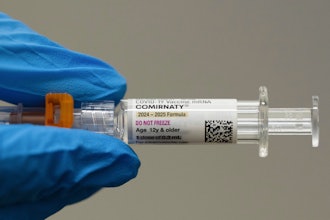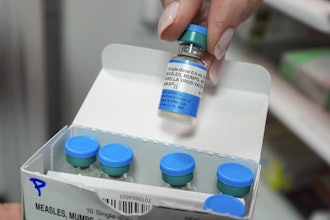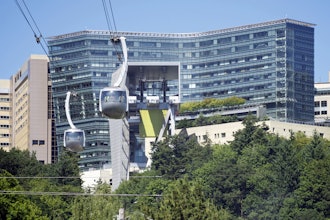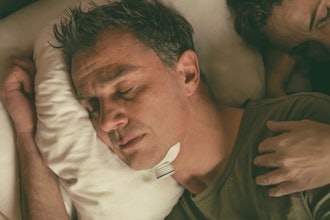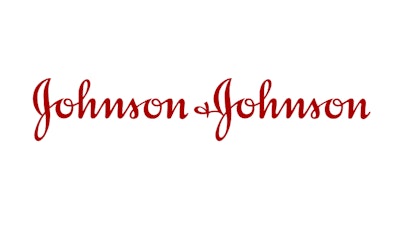
After an extensive search for the top changemakers in six key U.S. cities, Johnson & Johnson yesterday announced the 14 winners of its Health Equity Innovation Challenge. The awardees, who possess lived experience and a deep understanding of the communities they serve, were selected for their work in generating solutions to help close racial health and mortality gaps in six cities where black and brown individuals experience significant health inequities: Chicago, Detroit, Los Angeles, New Orleans, New York City and Philadelphia.
The Health Equity Innovation Challenge was created by Johnson & Johnson as a part of its “Our Race to Health Equity” program, a commitment to help eradicate the public health threats of racial and social injustices by eliminating health inequities for people of color. The challenge aims to foster innovation, entrepreneurship, and socioeconomic impact by supporting innovative solutions from local entrepreneurs, start- ups, innovators, and community-based organizations that have the potential to advance health equity.
Selected from a pool of more than 180 applicants by an independent judging committee, each awardee is receiving seed funding from a pool of more than $1 million from Johnson & Johnson Services, Inc., mentorship from renowned entrepreneurs and public health experts, and access to the Johnson & Johnson - JLABS ecosystem, which includes networking opportunities and more, to advance their innovations. One such awardee, Formerly Incarcerated Transitions (FIT) Clinic, is focused on reducing recidivism and improving health outcomes by providing continuity of care and other reintegration resources for formerly incarcerated individuals.
Chicago, IL
- A program from the Allergy & Asthma Network, Not One More Life – Trusted Messengers Program, sends physicians, nurses and educators to places of worship to mitigate the impact of COVID-19, asthma, and COPD in Black and Latinx communities. To date, the pilot has successfully screened over 1,000 patients, and Challenge funds will be used to expand programming through live events and educational materials.
- CommunityHealth has piloted hybrid in-person and telehealth-powered microsite clinics in under-resourced neighborhoods to provide free, convenient, comprehensive healthcare to people who otherwise would not have access to quality care. Challenge funds will support the opening of an additional microsite clinic in Chicago’s Little Village, a predominantly Latinx neighborhood with a high population of uninsured individuals.
Detroit, MI
- The Black Mothers’ Breastfeeding Association (BMBFA) is combating racial disparities in infant and maternal mortality and, in turn, working to improve birth and maternal health outcomes for Black families with its innovative digital tool, the BMBFA B’Right Hub. Challenge funds will allow BMBFA to expand the reach and scope of its interactive app and web-based tool with a focus on five overarching categories: breastfeeding, prenatal care, postpartum care, immunizations and well-baby visits.
- Sixty-three million people in the U.S. live in dental deserts. KARE Mobile has piloted one-chair, mobile dentistry vans that expand access to quality oral care for under- and uninsured communities while simultaneously empowering young dentists to pursue cost-effective practice ownership through a franchise business model. Funds will be used to expand these services to Detroit, MI in collaboration with community partners.
Los Angeles, CA
- Using a deep understanding of lived Latinx experiences and the importance of weaving culture into mental health interventions, Conscious Cultura is developing a digital platform that provides youth, educators and communities with evidence-based programs that advance well-being and equity. Challenge funds will be used to deliver the Conscious Cultura program in-person to youth and educators within the Los Angeles Unified School District as research and development to design technology and create content that meets the needs of the local schools and communities.
- In Los Angeles, Black and Latinx children are more likely to miss a day of school than their White peers due to asthma. SmartAirLA is combatting asthma-related hospitalizations, illness and air pollution exposure to improve quality of life for communities of color. Challenge funds will support expansion of their digital FightAsthma Tracker at community asthma education programs, and safety-net health clinics and hospitals.
- By building the capacity of barbershops to function as trustworthy point-of-care venues, TRAP Medicine is providing free, quality onsite healthcare services and education to address health disparities, mental health inequities and other preventable conditions among Black men. Challenge funds will be used to pilot a standalone Barbershop Wellness Hub, where men ages 18-35 can access a range of medical, mental health, and wraparound services. During this period TRAP Medicine will also work to identify pathways to scale this model to other areas throughout the state and country.
New Orleans, LA
- To address the 15- to 25-year life expectancy gap between White and Black New Orleanians, Ashé Cultural Art Center's I Deserve It! is training artists and culture bearers to serve as community health workers that deliver health messaging, resources and education to residents of neighborhoods with poor health outcomes. Challenge funds will be used to train and hire additional artists and creatives to serve as community health workers.
- Led by formerly incarcerated individuals who intimately understand the challenges of transitioning back into society, the Formerly Incarcerated Transitions (FIT) Clinic and Formerly Incarcerated Peer Support Group (FIPS) aim to reduce recidivism and improve health outcomes by providing continuity of care, free health services, and reintegration resources for the formerly incarcerated. Challenge funding will be used to support staff salaries and implement pre-release health systems education.
- Resilience Force is a job development and crisis response organization that retrains under- or unemployed New Orleanians from the hospitality industry as community health workers in jobs that support immediate and long-term community recovery. Challenge funds will allow for additional training, health and employment benefits, technology support and the deployment of more community health workers.
New York City, NY
- The Arthur Ashe Institute for Urban Health launched Beyond the Stigma, a youth-based, peer-to-peer training model to deliver a culturally tailored curriculum that breaks societal and cultural stigmas around mental health and wellness.
- Challenge funds will support expansion of the organization’s curriculum models to address new and additional topics with youth, such as racial trauma, suicide, masculinity, identity and more.
Philadelphia, PA
- eCLOSE Institute is inspiring diversity in science through STEM education and job training for students from under-resourced schools. Their classroom-based programming brings teachers, scientists and students together to investigate solutions that address the health issues prevalent in their own communities. Challenge funds will allow them to expand research experiences for students at 10 new schools.
- Philadelphia’s pregnancy-related death and infant mortality rates exceed the national average, but Maternity Care Coalition is addressing these inequities, improving birth outcomes, and increasing access to culturally connected and competent perinatal healthcare for Black and Brown families. Since its creation, the Perinatal Community Health Worker Program has trained a diverse network of over 200 perinatal community health workers, and funding will help create an additional training cohort to support even more local families of color.
- Technology start-up Viora Health is creating a personalized engagement solution to address social and behavioral determinants for conditions like pre-diabetes, diabetes and obesity, which significantly impact communities of color. Challenge funds will extend solutions to additional conditions, including hypertension, to help combat the barriers that prevent the proper management of health conditions.
Finalists of the Health Equity Innovation Challenge were selected by Tulane University School of Public Health and Tropical Medicine and an independent panel of judges, including Uché Blackstock, M.D., Founder and CEO of Advancing Health Equity; Helene Gayle, M.D., President and CEO of Chicago Community Trust; Cato T. Laurencin, M.D., Ph.D., University Professor at the University of Connecticut and CEO of the Connecticut Convergence Institute; Thomas LaVeist, Ph.D., Dean of the School of Public Health and Tropical Medicine at Tulane University; Eddie Martinez, Executive Director of the Latino Equality Alliance; Herman Moore, Owner, CEO and Chairman of Team 84 and former Detroit Lions Wide Receiver; and Kiera Smalls, Co-Founder of Strides and Executive Director of the Running Industry Diversity Coalition.
For more information on the Johnson & Johnson Health Equity Innovation Challenge and the 2021 awardees’ stories, visit www.jnj.com/health-equity-innovation-challenge.
















